-

PLoP
Pattern Languages of Programs, People, and Practices (PLoP®) is the premier conference for pattern authors and users to gather, discuss and learn more about patterns. To achieve this, the conference promotes the use of patterns and pattern languages, as well as the underlying theory of the nature of order. PLoP 2025 will be held October 12-15, 2025. Visit the PLoP Official Site,
- 1
The Hillside Mission

The mission of the Hillside Group is to improve the quality of life and society as a whole. This includes architects, developers, managers, owners, workers, educators, students, and more. Understanding and helping the human element is critical for achieving success. The Hillside Group believes in making processes and design more humane by paying attention to real people and existing practices.
The Hillside Group promotes the use of patterns and pattern languages to record, analyze, and share knowledge to help achieve its mission. The Hillside Group sponsors a variety of activities to achieve this mission—organizing workshops, hosting PLoP (pattern) conferences, and producing publications for discussing, recording, and documenting successful practices.
The Hillside Group supports many different conferences such as: PLoP, EuroPLoP, AsianPLoP, VikingPLoP, SugarLoafPLoP, and ChiliPLoP. These conferences focus on writing groups to better improve patterns through group exposure. Each conference offers advanced topics for the more adept pattern writers. Participants have the opportunity to refine and extend their patterns with help from knowledgeable and sympathetic patterns enthusiasts.
Pattern Books
The Design Patterns Book Series showcases many patterns from PLoP conferences and leading experts in the patterns field.

See our Pattern Book Library filled with over 80 Pattern related books.
Patterns Resources
- Pattern Definition
A pattern language defines a consists of patterns and the rules with sequences to combine them.
- Patterns Catalog
A collection of pattern resources on the web. Sign up for an account to add your own.
- Tools for Writing Patterns
Pattern writing tools include example code and pattern writing templates.
- PLoP Conference Proceedings
Past conference proceedings from the PLoP conferences.
PLoP Conferences
How to Run PLoP
Writers' workshops are used by the pattern community to improve our patterns and other manuscripts. These workshops are the primary focus of our time at PLoP and in them we discuss accepted papers. Authors are assigned to a writers' workshop and are expected to attend all sessions in that workshop. All other conference attendees are encouraged to attend one or more writers' workshop sessions, preferably choosing to read and review papers where they can contribute. Paper assignments to workshops are posted before the conference.
The format of writers' workshops has been adapted from the creative writing community. Each writers' workshop contains a handful of papers, which authors must read before the conference to be able to give each other feedback on their work in a peer review session of around one hour per paper. Richard Gabriel has written both a book and a pattern language on writers workshops. The pattern language is a good place to start.
Each writers' workshop is led by a moderator. In each session, the author or authors of the paper under discussion remain (mostly) silent while the others discuss it and explain insights and views they have about it. Depending on the workshop moderation style, authors may be brought into the discussion to gain insight and clarity about their work. From these sessions, authors get much feedback and many suggestions about how they can improve their work.
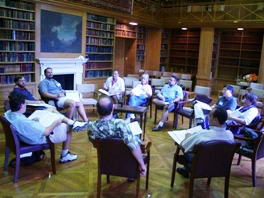
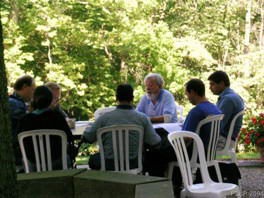
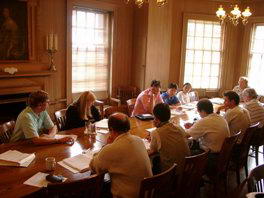
A fruitful participation in a writers' workshop session requires each participant to read the papers in advance and to take some notes on what was liked about the papers and what needs improvement. Because there's no reading time during the writers' workshops—experience shows that chatting with others or me\ eting people is much more fun than being alone reading papers—do yourself a favor and read the papers of your writers' workshop in advance.
Structure of a Writer's Workshop
The writers workshop format is a particularly effective method to review, evaluate, and improve pattern descriptions. The general structure of a writers workshop has a group of ``discussants'' read the paper carefully before the session. During the workshop, the discussants examine the strengths and weaknesses of each paper, accentuating positive aspects and suggesting improvements in content and style.
Although the author is present, he or she remains ``invisible'' during most of the discussion. The author is expected to take notes and/or have someone take notes for them during the discussion (so they can concentrate on the discussion). Many reviewers also give their marked-up copies of the paper to the authors with further written comments. These comments are intended to help the author improve the paper, but the author is not obliged to follow all the suggestions. The entire process normally takes about an hour per paper.
Within a writers workshop session, papers are discussed in several ``rounds'' according to the following format:
- The paper is discussed by a group of people including its author, a moderator, and a group of reviewers who are familiar with the contents of the paper.
- The author of a paper reads a paragraph of his/her choice. The goal is to let the author express what he or she feels is particularly important about the pattern, as well as to give participants a chance to get to know the author a bit.
- One or two reviewers briefly summarize the paper from their personal viewpoint. The goal is to identify what the reviewer(s) thought were the key points of the pattern. Since the other participants should already have read the work, the summaries should be concise. In particular, it's best to avoid debating any inconsistencies between different reviewer's interpretations of the paper at this point.
- The group then discusses what they liked about the paper, first in terms of content and then in terms of style. The goal is to identify and praise the strengths of the work.
- After presenting the positive aspects of the paper, the group discusses how to improve the content and style of the paper. The goal here is not to criticise the paper per se, but rather to give the author constructive suggestions on how to make the paper better. In general, the style for critical comments is to first state the problem followed by a suggestion on how to solve the problem.
- After this discussion, the author of the paper may ask questions of the reviewers to clarify their statements. The goal is to give the author a chance to better understand certain comments, rather than to defend the paper.
- The session closes with the audience thanking the author for writing the paper.
Note that during rounds 3, 4, and 5 the author of the paper is only ``virtually'' present. He or she does not actively participate in the discussion. Moreover, the reviewers do not address him or her directly, i.e., the reviewers discuss the paper as if its author is not present. In particular, the reviewers should refer to ``the author'' in the third person and should not look at the author when making comments. Another outline can be found here.
Note Allan Kelly has created a PDF flowchart which can be found here.
Suggestions for a Successful Writer's Workshop
The following are some suggestions for holding a successful writer's workshop. The purpose of these suggestions is to foster creativity and sharing of ideas and insights among the participants and to respect and appreciate the contribution of the authors.
- Ensuring appropriate atmosphere -- It is very important that workshop participants act professionally and courteously towards each other and towards the author during a workshop. The goal is to ensure that participants feel comfortable sharing their insights and suggestions for improvement. We all feel uneasy when we are being evaluated, and so authors will feel nervous under the best of circumstances. If one of the workshop attendees is very critical then the author will feel so bad he or she will probably never want to come back.
It is the responsibility of the moderators (and particularly the lead moderator) to ensure the atmosphere of the workshop is constructive and conducive to insightful discussions, rather than having people show off their intellect by attacking other people. Moreover, it's very important to stress positive aspects of the paper before presenting (constructive) criticisms.
- Contributions by non-authors -- Moderators should ask each author whether they would like to include or exclude non-authors from commenting on their paper during their workshop review. In addition, moderators should let authors comment on the paper being reviewed before asking for non-author comments. The goal is to make sure that those who have contributed their effort to write papers for the workshop are recognized accordingly.
We've found that non-authors usually have good things to contribute, and authors would lose a lot if they didn't get their input. However, we realize that most of the authors do not have a lot of writing experience. They are expert developers, not expert writers, so we are sympathetic and try to be as helpful as we can be. The authors are sharing their hard-earned experience with us, and we want to demonstrate our appreciation to them.
- Circle organization -- When possible, the writer's workshops should be organized with the authors in the workshop sitting in the inner circle, and non-authors sitting in the outer circle. The goal is to recognize the authors, who have contributed their efforts to making the workshop possible, and to encourage the authors to contribute to the discussion. Naturally, if the room isn't large enough to accommodate this, then everyone should sit in a single larger circle.
- Rotating moderators -- It has been common practice at past PLoPs to rotate moderators among authors in writer's workshops. The goal is to give authors the opportunity to gain experience moderating a writer's workshop. It is the responsibility of the lead moderator for each session to help other moderators if questions arise.
- Workshop size -- To avoid overcrowding, please limit the number of non-authors in a writer's workshop to around 10. The goal is to disperse the non-authors relatively evenly throughout the 7 workshops. Since we have almost 80 authors at PLoP '96 (and about 110 attendees) this should be fairly easy to do since the average number of non-authors will be about 5 per session.
portions of this page were originally posted on www.c2.com
Dear PLoP author:
Thank you for taking the first step in making PLoP'05 a contribution to
the patterns community.
Before we proceed to the next step, shepherding, we need to make sure
that as authors you do your part. What will this entail?
First and foremost is your participation in the shepherding process. As
an author, we expect that you will work carefully and diligently with your
shepherd to improve the quality of the content and exposition of your
pattern and/or pattern language. We also expect that for every paper that
is submitted, that at least one author will contribute to the shepherding
of another paper written by someone other than one of their own
coauthors. If you have written a pattern paper that has been workshopped,
at PLoP or another PLoP-like conference, we expect that you will
contribute to the shepherding of another paper by someone other than one
of your coauthors. If you have never shepherded a paper before, don't
worry. A program committee member will help you in the shepherding process.
Second is your participation in the workshop process. Workshopping is
the heart of PLoP. Every paper must be represented by at least one author at
the workshopping sessions at PLoP. To ensure the highest quality and to
allow for reasonable scheduling, an author is only allowed to represent
one or two papers for workshopping. If you are an author of multiple
papers, you have something unique to offer to PLoP. As such, your
contributions to the workshopping of other's work is particularly
valuable. By only representing two papers, others can gain from your
expertise when workshopping their work.
In summary, before we proceed to shepherding, we need a response from
you saying who will represent the paper at PLoP and a statement that the
person who is representing the paper will attend PLoP. As soon as we have
the registration system up and running, we will email you and give you a
deadline as to when you have to register. If you find that you cannot
register by the deadline, you must indicate which of the paper's remaining
authors will represent your paper at PLoP, keeping in mind that no author
may represent more than two papers. If you do not, all shepherding activities
on your paper will cease.
We on the program committee look forward to working with you and your
shepherd in improving your work. We look forward to seeing you at PLoP in
September!
Joel Jones
Program Chair
contents of this page originally posted on www.c2.com
If you receive this, it's cause we think you're a shepherd for a PLoP-96 paper. The following is a letter used by Bobby Woolf which is a letter that you may want to use when contacting your author.
Dear <Author/Contact's Name>,
My name is <Shepherd's Name>. I will be shepherding the paper you've submitted to PLoP '96, <Paper's Title>. What this means is that I will help you improve it (if necessary) prior to the conference so that you can present the best possible paper for review at the conference. It is also up to me to decide whether or not your paper is good enough for the conference. It's in your best interest to use this opportunity to improve your paper as much as possible. People who make the most of this process will have the best chances of being accepted to the conference.
Here's the schedule for what's due when:
July 15th -- Notification to authors July 29th -- Final pre-conference draft due September 4-6th -- Conference October 14th -- Proceedings draft due
So we have between today and July 15th to work on your paper. If I accept your paper, you'll have one more chance to make changes to your final draft for the conference. It is then due by July 29th.
I will be contacting you within a few days with my initial comments on your paper. In the meantime, if you have any questions about the review process or the conference, feel free to contact me at <Shepherd's e-mail address and/or phone number>.
I look forward to working with you.
<Shepherd's Signature>
contents of this page originally posted on www.c2.com
|
contents of this page originally posted on www.c2.com
- Hillside Fellowship Award
- PLoP Conference Proceedings
- Patterns for API Design
- Pattern Languages of Programing
- Security Patterns in Practice
The Hillside Fellowship Award
The Hillside Fellowship Program was established in 2016 to recognize members of The Hillside Group who have made exceptional contributions to the Hillside community and to the Patterns community at large. The title of Hillside Fellow denotes an outstanding member who has consistently and repeatedly:
- provided excellence in contributions to the patterns body of knowledge
- advanced the arts,
PLoP Conference Proceedings
The PLoP Conference Proceedings has been moved to https://plopcon.org/plop-proceedings!
Read More
Patterns for API Design
" Patterns for API Design " by Olaf Zimmermann, Mirko Stocker, Daniel Lubke, Uwe Zdun, and Cesare Pautasso
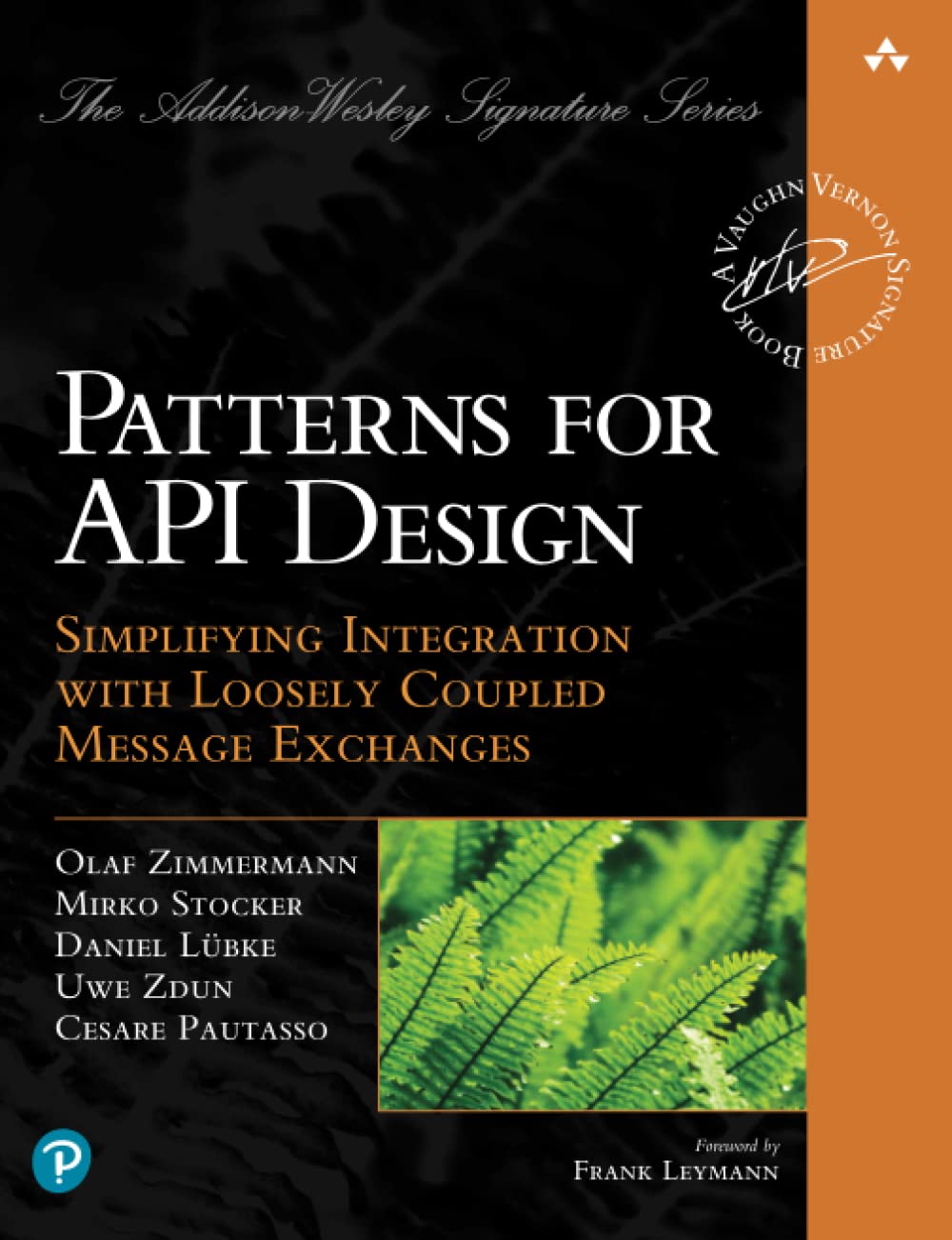
This book is for any domain, technology, or platform
- Identify and overcome API Challenges
- Size your endpoint types and operations
- Design request and response messages and their representations
- Refine your message design for quality
- Combine patterns to solve real-world problems and make
PLoP™ (Oct 12-15, 2025)
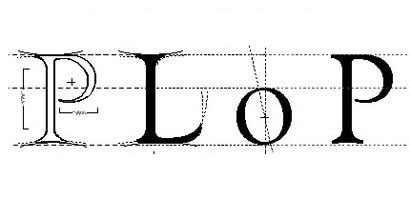
Check out the main PLoP Website for more information and details!!!
Read More
Security Patterns in Practice
Eduardo Fernandez's new book " Security Patterns in Practice: Designing Secure Architectures with Software Patterns " has been published.
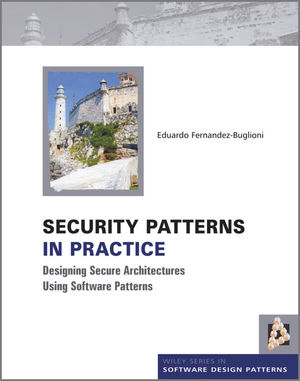
It is the result of 14 years of producing security patterns with students and colleagues. Almost all of these patterns went through PLoP, EuroPLoP, AsianPLoP, or SugarLoafPLoP. Many of you have participated as shepherds or workshop commentators, the book owes something to
… Read More





